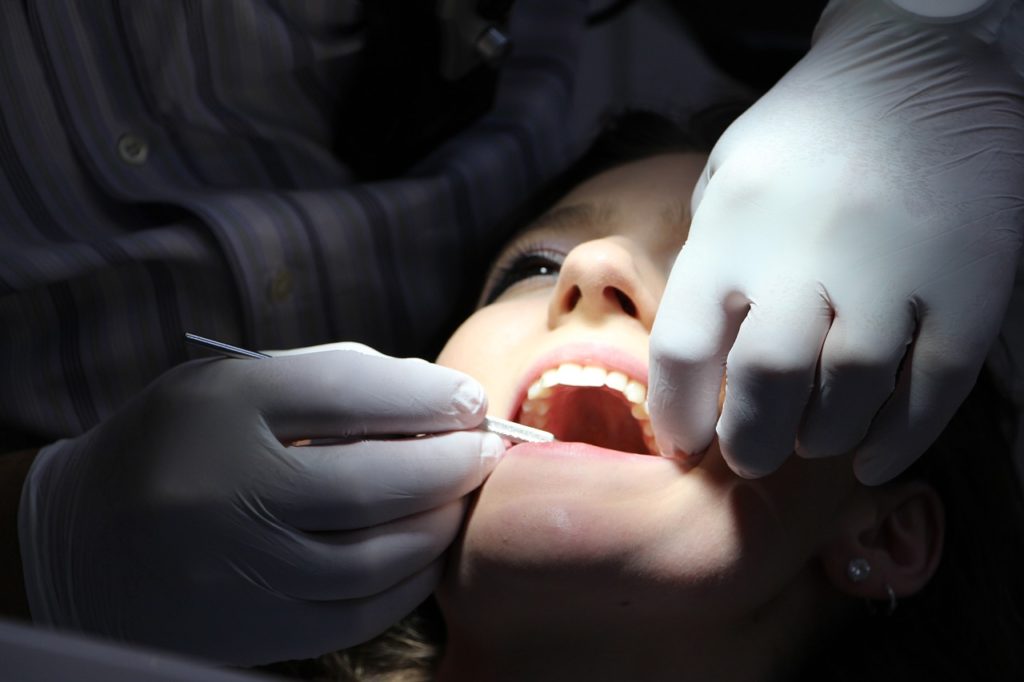
Composite Bonding That Brings Your Smile Back to Life
Small chips, cracks, or gaps can make a big difference in how you feel about your teeth. Cosmetic dentistry offers several solutions. Composite bonding London is one option that can quickly address imperfections without major procedures.
How Composite Bonding Works

The process is straightforward, affordable compared to other treatments, and can often be completed in just one appointment. But how? Composite bonding uses a tooth-coloured resin that’s carefully shaped and hardened with a special light. This material can repair chips, fill small gaps, and even change the shape of teeth. The process usually starts with preparing the tooth’s surface so the resin adheres properly. Once applied, the dentist shapes it to match your natural tooth structure before polishing it for a smooth finish. The end result is seamless, like the imperfection was never there in the first place.
Why It’s a Popular Choice
Many patients choose composite bonding because it offers a fast, minimally invasive solution. Unlike veneers or crowns, it rarely requires removing much of the natural tooth. That means you keep more of what you already have, while still improving the look of your smile. It’s also cost-effective compared to other cosmetic options. Plus, the treatment can be done in a single session, so you walk out the same day with visible results. That’s a win for anyone with a busy schedule.
Situations Where Bonding Works Best

Composite bonding is especially useful for minor cosmetic issues. A small chip from biting into something hard, slight gaps between teeth, or discolouration that doesn’t respond well to whitening can all be fixed with bonding. It’s also a good option for reshaping teeth that are uneven in size. While it’s not meant for major structural damage, it shines when the goal is to improve appearance quickly and affordably. Think of it as the cosmetic quick-fix that still delivers lasting results.
Longevity and Maintenance
With proper care, composite bonding can last several years. The resin material is durable, but it’s not indestructible. Chewing ice, biting nails, or using your teeth as tools can shorten its lifespan. Regular dental check-ups help spot any wear or damage early. Good oral hygiene, such as brushing twice a day, flossing, and avoiding excessive staining foods, keeps your bonded teeth looking their best. Maintenance is straightforward, but it does require consistency to protect your investment.
Why the Right Dentist Matters

The skill of the dentist plays a huge role in how natural your composite bonding looks. An experienced practitioner knows how to match resin colour to your teeth, sculpt the right shape, and polish it for a realistic finish. Choosing a clinic with a strong track record in cosmetic work means your treatment won’t just fix the problem; it will blend seamlessly with your smile. That’s the difference between a result that looks “done” and one that looks effortless.
Composite bonding offers a practical, accessible way to enhance your smile without lengthy treatments or high costs. It’s ideal for small cosmetic issues that affect how you feel about your teeth. With the right dentist, the transformation can be subtle yet powerful. If a chipped tooth or small gap has been bothering you, this could be the quick and effective solution you’ve been looking for.…



 Eating disorders like anorexia nervosa and bulimia can have severe consequences for oral health. Frequent vomiting associated with bulimia exposes teeth to stomach acid, leading to enamel erosion, tooth sensitivity, and an increased risk of cavities. Malnutrition resulting from restrictive eating behaviors can weaken the immune system, making the oral cavity more susceptible to infections and gum disease. A multidisciplinary approach involving medical, dental, and mental health professionals is crucial for addressing the underlying causes of eating disorders and providing comprehensive oral care.
Eating disorders like anorexia nervosa and bulimia can have severe consequences for oral health. Frequent vomiting associated with bulimia exposes teeth to stomach acid, leading to enamel erosion, tooth sensitivity, and an increased risk of cavities. Malnutrition resulting from restrictive eating behaviors can weaken the immune system, making the oral cavity more susceptible to infections and gum disease. A multidisciplinary approach involving medical, dental, and mental health professionals is crucial for addressing the underlying causes of eating disorders and providing comprehensive oral care.
 Greek yogurt is also a good probiotics, beneficial bacteria essential for gut health. Probiotics help keep your digestive system healthy and functioning correctly, and they can also help reduce the risk of developing diseases like irritable bowel syndrome (IBS) and constipation.
Greek yogurt is also a good probiotics, beneficial bacteria essential for gut health. Probiotics help keep your digestive system healthy and functioning correctly, and they can also help reduce the risk of developing diseases like irritable bowel syndrome (IBS) and constipation. Greek yogurt is not just great for your body. It is also great for your mind. This delicious dairy product is high in omega-three fatty acids, essential for cognitive function and mental health. Moreover, Greek yogurt is a good source of protein, which can help boost mood and reduce stress levels.
Greek yogurt is not just great for your body. It is also great for your mind. This delicious dairy product is high in omega-three fatty acids, essential for cognitive function and mental health. Moreover, Greek yogurt is a good source of protein, which can help boost mood and reduce stress levels.
 We have always been told to make make sure that we drink at least eight glasses of water in a day. We know how important water is for many bodily functions, but what you might not know is that water can assist with weight loss.
We have always been told to make make sure that we drink at least eight glasses of water in a day. We know how important water is for many bodily functions, but what you might not know is that water can assist with weight loss. Eggs are not only loaded with proteins, but they are also very crucial when it comes to weight loss. Although we usually like to have a largely grain-based breakfast, if you can substitute that with eggs, you can reduce your daily calorie intake.
Eggs are not only loaded with proteins, but they are also very crucial when it comes to weight loss. Although we usually like to have a largely grain-based breakfast, if you can substitute that with eggs, you can reduce your daily calorie intake. One of the things that make green tea very popular is because it helps people lose some weight. The tea is rich in strong antioxidants, commonly referred to as catechins.
One of the things that make green tea very popular is because it helps people lose some weight. The tea is rich in strong antioxidants, commonly referred to as catechins.
 you have in your home. Make sure you have enough space that can accommodate all the gym equipment you plan to buy. You should also make sure they are of the right quality for extended service. Having a gym in your home can benefit you in several ways. They include:
you have in your home. Make sure you have enough space that can accommodate all the gym equipment you plan to buy. You should also make sure they are of the right quality for extended service. Having a gym in your home can benefit you in several ways. They include: This is common among amateurs. Privacy is something you will not enjoy in a public gym. A home gym offers some top-level privacy because nobody is watching you. You can hire a personal trainer who will take you through different workouts. You can set up a home gym to enjoy these benefits.…
This is common among amateurs. Privacy is something you will not enjoy in a public gym. A home gym offers some top-level privacy because nobody is watching you. You can hire a personal trainer who will take you through different workouts. You can set up a home gym to enjoy these benefits.…


 Ask the dentist about their modes of payment. If you have insurance, ensure that you choose a dentist who accepts your insurance. Some dentists will require you to pay out of pocket then you get to claim from the insurance company. Avoid such since following up on refunds with insurance companies can be cumbersome.
Ask the dentist about their modes of payment. If you have insurance, ensure that you choose a dentist who accepts your insurance. Some dentists will require you to pay out of pocket then you get to claim from the insurance company. Avoid such since following up on refunds with insurance companies can be cumbersome.
 If you have been following news about the medical cannabis, then it is likely that it rings a bell when you hear the term CBD oil. Cannabidiol or CBD is one of the chemical compounds found in a plant called cannabis. The CBD is basically the element that makes cannabis ideal for medical treatments.
If you have been following news about the medical cannabis, then it is likely that it rings a bell when you hear the term CBD oil. Cannabidiol or CBD is one of the chemical compounds found in a plant called cannabis. The CBD is basically the element that makes cannabis ideal for medical treatments.
